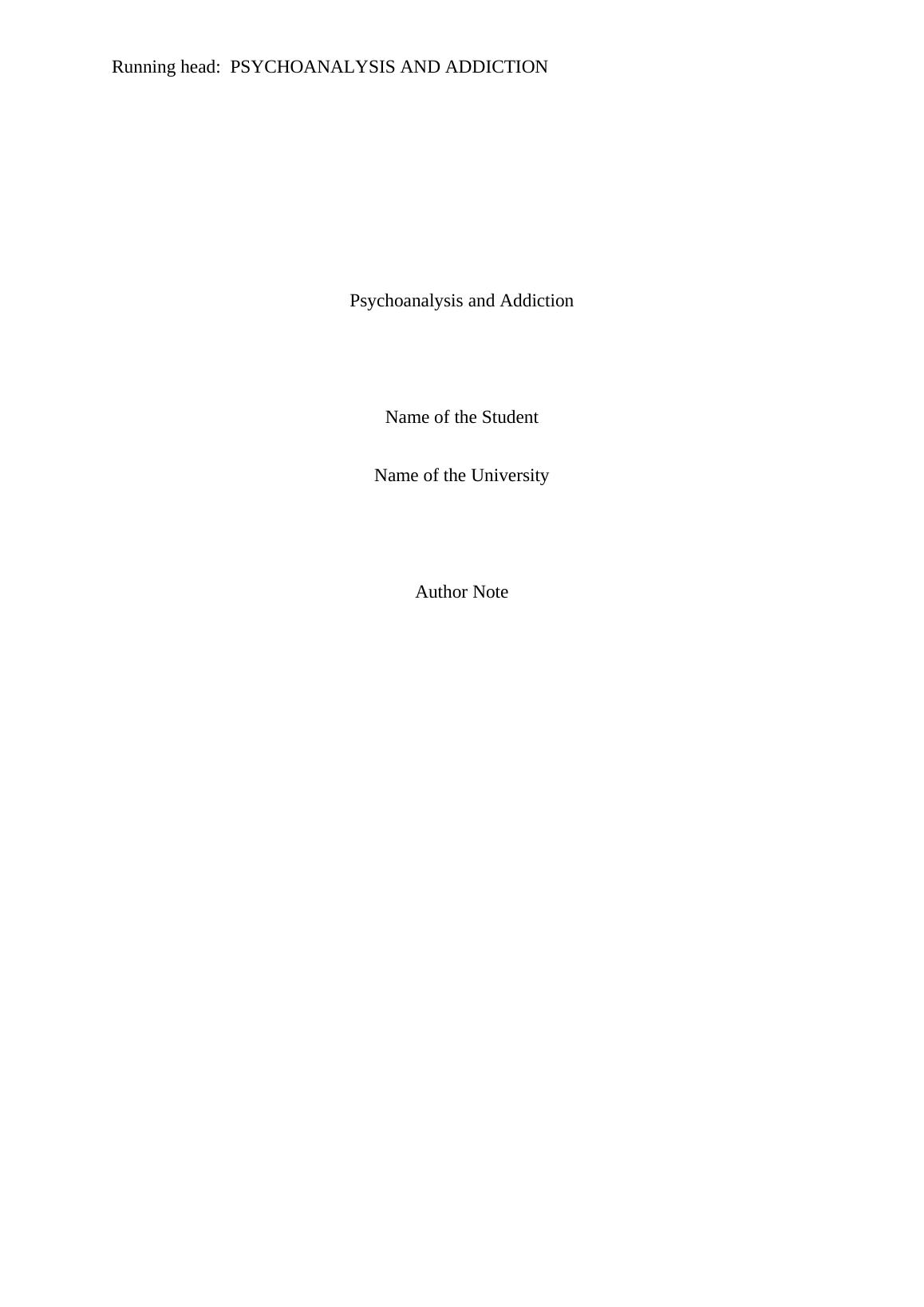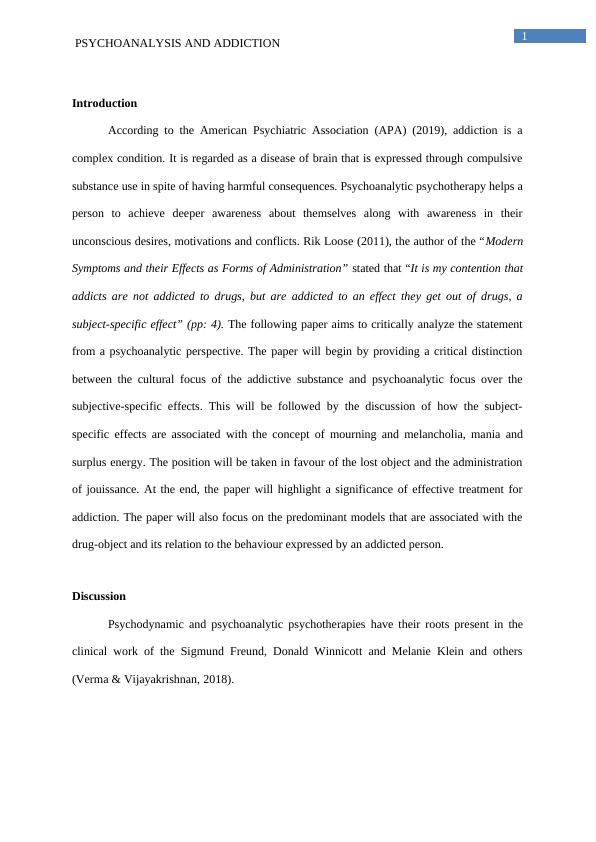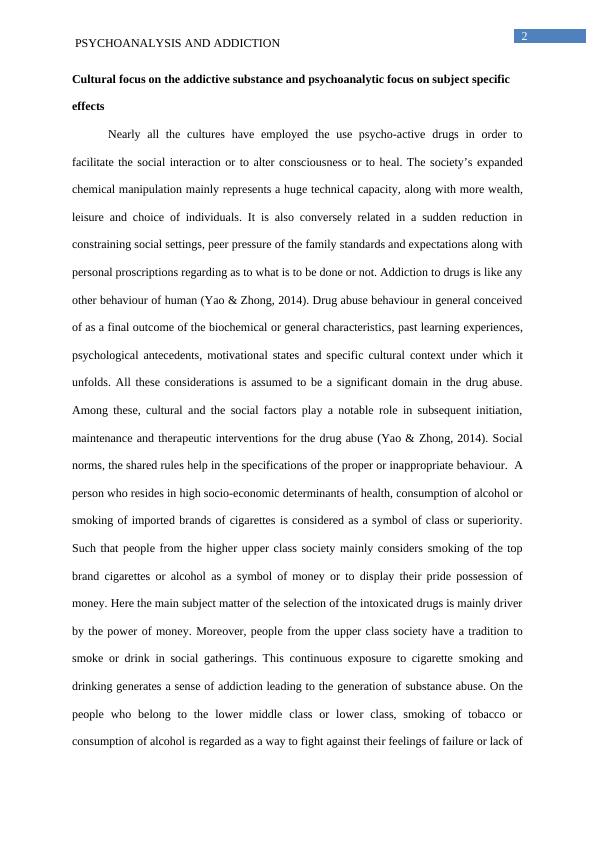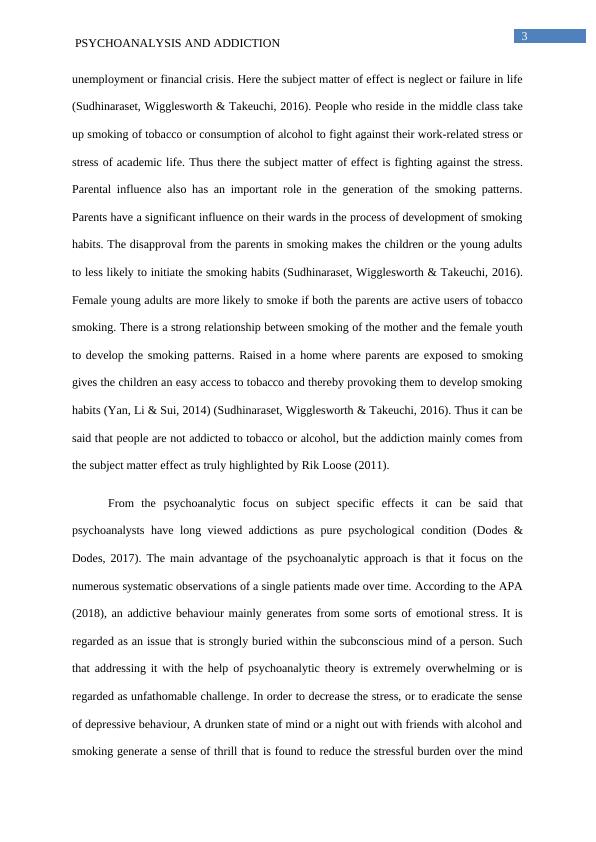Psychoanalysis and Addiction
Write a critical analysis of the statement that addicts are not addicted to drugs, but are addicted to an effect they get out of drugs, from a psychoanalytic perspective.
16 Pages3759 Words107 Views
Added on 2023-03-31
About This Document
This paper critically analyzes the relationship between psychoanalysis and addiction. It explores the subject-specific effects of addiction and the role of mourning and melancholia. The paper also discusses effective treatment options for addiction.
Psychoanalysis and Addiction
Write a critical analysis of the statement that addicts are not addicted to drugs, but are addicted to an effect they get out of drugs, from a psychoanalytic perspective.
Added on 2023-03-31
ShareRelated Documents
End of preview
Want to access all the pages? Upload your documents or become a member.
Art Therapy: Philosophy, Benefits, and Scope of Practice
|2
|683
|80
Introduction of Social Work and Social Approach
|9
|2602
|14
Effects of drug Assignment PDF
|10
|3470
|267
HLSC122 Inquiry in Health Care : Assignment
|11
|2478
|170
Working with Adolescents | Presentation
|1
|956
|22
Health Campaign Strategy for Substance Abuse in Teenagers
|5
|1204
|180




